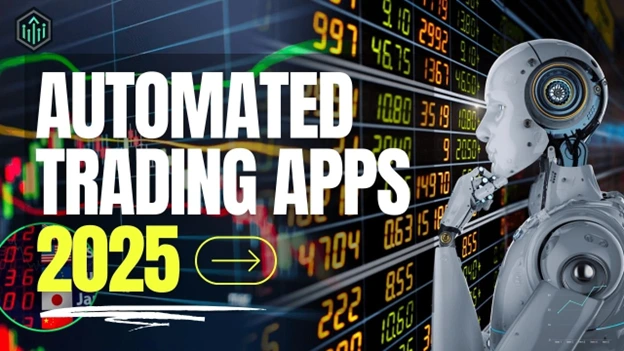Top Trading Applications in 2025: Features Retail Traders Can’t Afford to Miss
By: Sensa Team
Posted: Aug-11-2025
As retail investing continued to grow in the last few years, 2025 marks a shift in the way individual traders operate. Whether you are a novice or an experienced trader of stocks, your performance mainly relies on the stock trading strategies. The modern apps are no longer a tool, but they are an ecosystem that is meant to enable smarter, faster, and safer trades. The selection of the options trading application can help you a lot in producing your results in the market and build confidence in the market.
What features define the best trading platforms, and which ones are considered the top choices this year?
Essential Features of Modern Trading Apps
A good trading app should provide more than the possibility to purchase or sell shares. It must provide users with data, speed, and strategy tools. This is what a quality options trading application should deliver to the retail traders in 2025:
- Advanced data and price alerts: It is necessary to have real-time feeds with small latencies.
- Advanced indicators and charting: Can be useful to tailor technical setups.
- Learning material: In-game tutorials or strategy simulators facilitate long-term learning.
- Safe sign-in and data security: Biometric signatures and two-factor authentication have become the norm.
- Fine user experience: A user interface that is smooth so you never have to miss a trade.
The applications that include such features assist traders in executing and testing stock trading strategies in real markets with confidence.
Best U.S. Stock Trading Apps in 2025
So, here is how the top U.S. trading apps will look in the year 2025 at the forefront of retail trading:
Webull
Webull is designed for active traders who don’t have to pay high prices for advanced features. It offers commission-free trading in stocks, exchange-traded funds, and options, and extended-hours trading. The platform is unique because it has deep charting capabilities, live market data, and community participation. It enables margin trading and is particularly popular with people who want a mobile-first experience without sacrificing technical capabilities.
Public
Public combines both investment and social functions, thus enabling individuals to track professional investors, access thematically-built portfolios, and also educate themselves. It also provides free commission on stocks and ETFs, and unlike other apps, it does not use payment-for-order-flow, as order flows are transparently routed. Long-term investing is also part of the focus of Public, which includes the built-in education to help people who are making their first trades.
Robinhood
Robinhood is a pioneer of commission-free trading in the United States. It has a clean interface that is easy to use so that one can buy and sell stocks, options, and crypto with zero account minimums. Its latest features are 24-hour trading on a few securities and fractional shares. Robinhood is one of the options that users resort to when they need simple and fast trading.
E*TRADE
E*TRADE is a full-service trading platform provided by Morgan Stanley, offering a balance of ease of use and more powerful trading features. The mobile application is user-friendly, but it does not leave out strong research tools, screeners, and charting capabilities. It fits in well whether you are a casual trader or a seasoned investor due to its paper trading capability, retirement planning, and the fact that you get a free trade in the U.S.
Fidelity
Fidelity is also a full-service brokerage that has one of the best mobile apps of research-intensive traders. It provides commission-free trading, educational resources, and retirement, ETF, and mutual funds tools. The mobile platform provided by Fidelity has real-time quotes, market reports, and convenience in getting customer service, which is perfect when you want to invest in the long term and also find value and trust.
Mobile vs. Desktop: Which Should You Use?
Mobile or Desktop: Which is Best to Use?
The question of using a mobile application or a desktop platform is among the most frequently asked ones among novice traders. They are both good and bad:
Mobile: Ideal to use when tracking, handling alerts, and making quick trades. It is suitable for people who require flexibility and real-time notification.
Desktop: Offers greater screen real estate and advanced functionality to perform detailed chart analysis, multi-window trading, and an entire portfolio overview.
Most excellent option trading tool has become synonymous with mobile or desktop synchronisation. This allows traders to slip in between devices without a drop in speed or functionality.
Conclusion
Retail investors have more power than ever before in the 2025 trading landscape. The use of the appropriate options trading application allows traders to have access to professional tools, create better stock trading strategies, and respond to the changes in the market immediately. The apps are leading the way in delivering value to users through value to users in terms of innovation, speed, and accessibility.
When you develop your trading routine, devote some time to the marketplace study of these platforms and align them with your trading objectives, since in the current market, the perfect application is your competitive advantage.